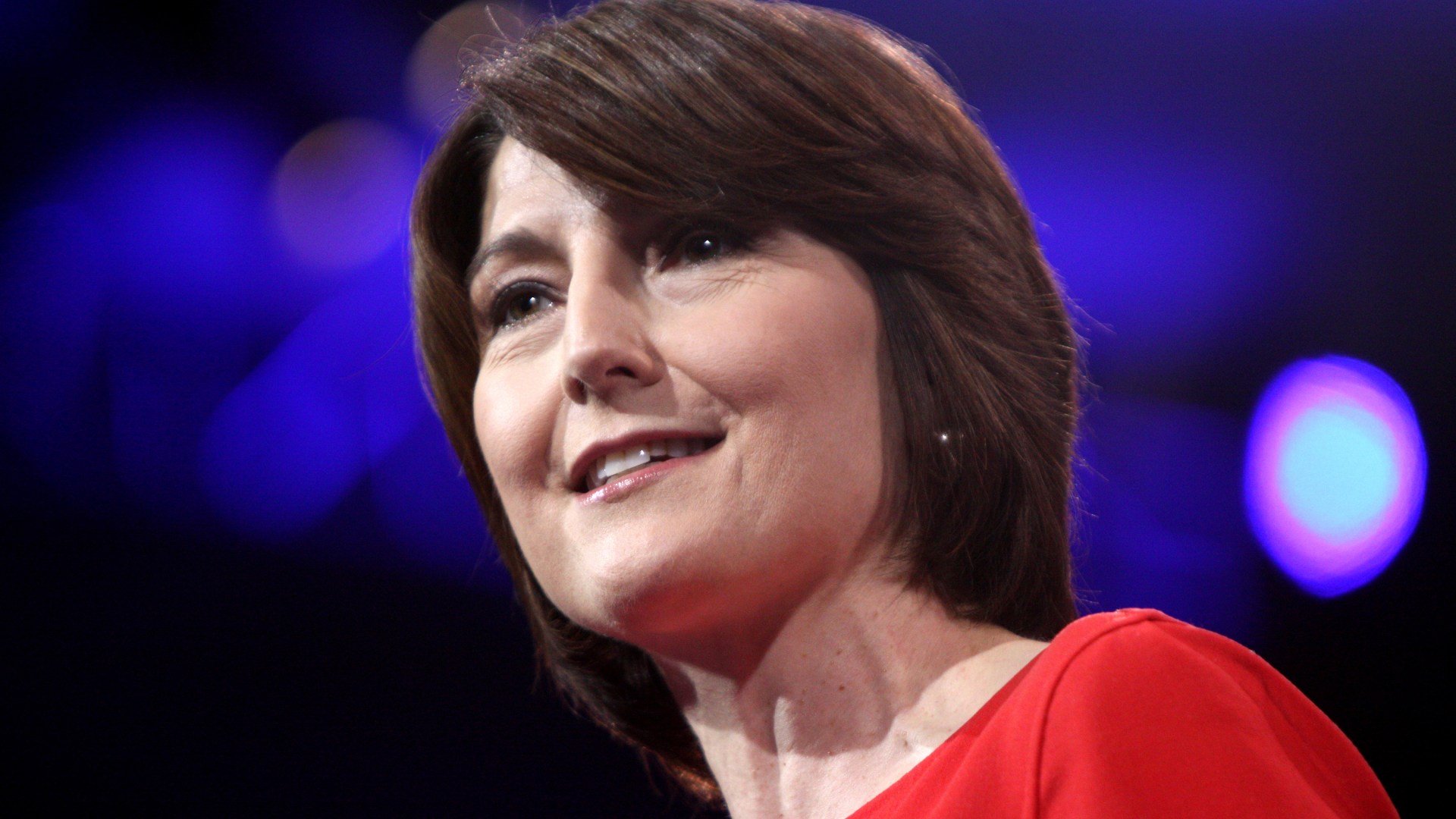Rep. Cathy McMorris Rodgers's response to the president's State of the Union address last night drew attention to her family, and specifically to her oldest son Cole, who has Down syndrome. Her speech implied her personal and political support for children with Down syndrome, but as a fellow mother of a child with Down syndrome I'm torn by the inconsistent messages about Down syndrome (and other vulnerabilities) from both parties.
Liberals and conservatives alike don't seem to understand the reasons to welcome people with Down syndrome into our families. When Sarah Palin was running for Vice President, conservative pundit Ann Coulter wrote about Palin for TIME: "And yes, she really did walk the walk on abortion when she found out she was carrying a Down-syndrome baby." A similar sentiment arose in a recent article for Slate about McMorris Rodgers. Here, Hanna Rosin writes:
She found out her child had a high chance of having Down syndrome, then went into labor the next day. She never got to make the decision, although by that point she was already publicly anti-abortion, so it's hard to imagine she would have done differently.
Ann Coulter and Hanna Rosin both infer that these women's reproductive decisions were dictated by their conservative views on abortion, not the other way around. But perhaps both McMorris Rodgers and Palin had decided to welcome whatever life was given to them. Perhaps their posture towards life, pregnancy, and children came first, and then helped inform their politics.
Having a child with Down syndrome is not a burden. It is not a cross I have to bear. It is not a consequence of ignorance or misinformation or "it-could-never-happen-to-me" attitudes. Even though I didn't know our daughter Penny had Down syndrome before she was born, I chose her as soon as I said no to an amniocentesis. I chose her when I said we wouldn't terminate the pregnancy under any condition. I chose her when I stopped walking down the prenatal testing road.
I am eternally grateful for the choices I made and the daughter I have. And I am not alone.
Countless other women have forgone prenatal testing altogether or have discovered through these tests that their children have Down syndrome and still continued with the pregnancy. Perhaps some of them did so simply out of adherence to pro-life principles. But plenty of liberal pro-choice people have children with Down syndrome because they chose to receive these children. (See Alison Pipemeier, Rachel Adams, and George Estreich, for instance.) Plenty of conservative, pro-life people continued their pregnancies after a prenatal diagnosis—not out of sullen obedience to a cause, but out of love, out of a posture of receptivity, out of a commitment to the life coming into their family.
It's time for both liberals and conservatives in this country to recognize the truth: pro-choice people choose to have babies with Down syndrome. Pro-life people do too. (And of course both pro-life and pro-choice people also choose abortion in the face of certain prenatal diagnoses.) They don't do so out of coercion, fear, or principle. They do so out of receptivity to their children—with all the pain and beauty, grief, and joy that comes along with any human life.
Both liberal and conservative policies offer some support for families of children with Down syndrome while also overlooking crucial ways to advocate for the vulnerable lives among us. For instance, the Democratic emphasis on social services like early intervention; early and free preschool; education and workplace opportunities; and comprehensive, affordable healthcare provide crucial supports. These kinds of programs help make sure families raising children with Down syndrome and other chromosomal conditions can do so in a way that benefits both the individuals and their communities.
But Democrats also support funding for prenatal genetic testing for disabilities, without providing up-to-date and unbiased information for parents making a decision about abortion in light of such test results. Studies have demonstrated that parents are often given misinformation from doctors and genetic counselors about continuing pregnancies with babies with chromosomal conditions. Furthermore, the Democratic position on abortion detracts from conversations about the ethical implications of abortion based upon a prenatal diagnosis.
Republicans, in contrast, defend the value of the lives of children with Down syndrome from conception to birth, but the lack of support for health and social services results in a mixed message about our nation's commitment to care and sustain the most vulnerable ones among us.
Cathy McMorris Rodgers described her son Cole in terms that sound very familiar to me:
[The doctors] told us all the problems. But when we looked at our son, we saw only possibilities. We saw a gift from God. Today we see a 6-year old boy who dances to Bruce Springsteen; who reads above grade level; and who is the best big brother in the world. We see all the things he can do, not those he can't.
I trust that McMorris Rodgers' can-do philosophy will work wonders for Cole, especially when it is coupled with the health, educational, and social supports our government provides.
As I wrote before, liberals and conservatives alike don't seem to understand that there are reasons to welcome people with Down syndrome into our families. If as a culture we can start to understand these reasons, perhaps, from there, we can begin to understand that there are reasons to welcome people with Down syndrome into our schools, our places of worship, our workplaces, and our communities. And maybe that welcome will emerge across the political divide.









